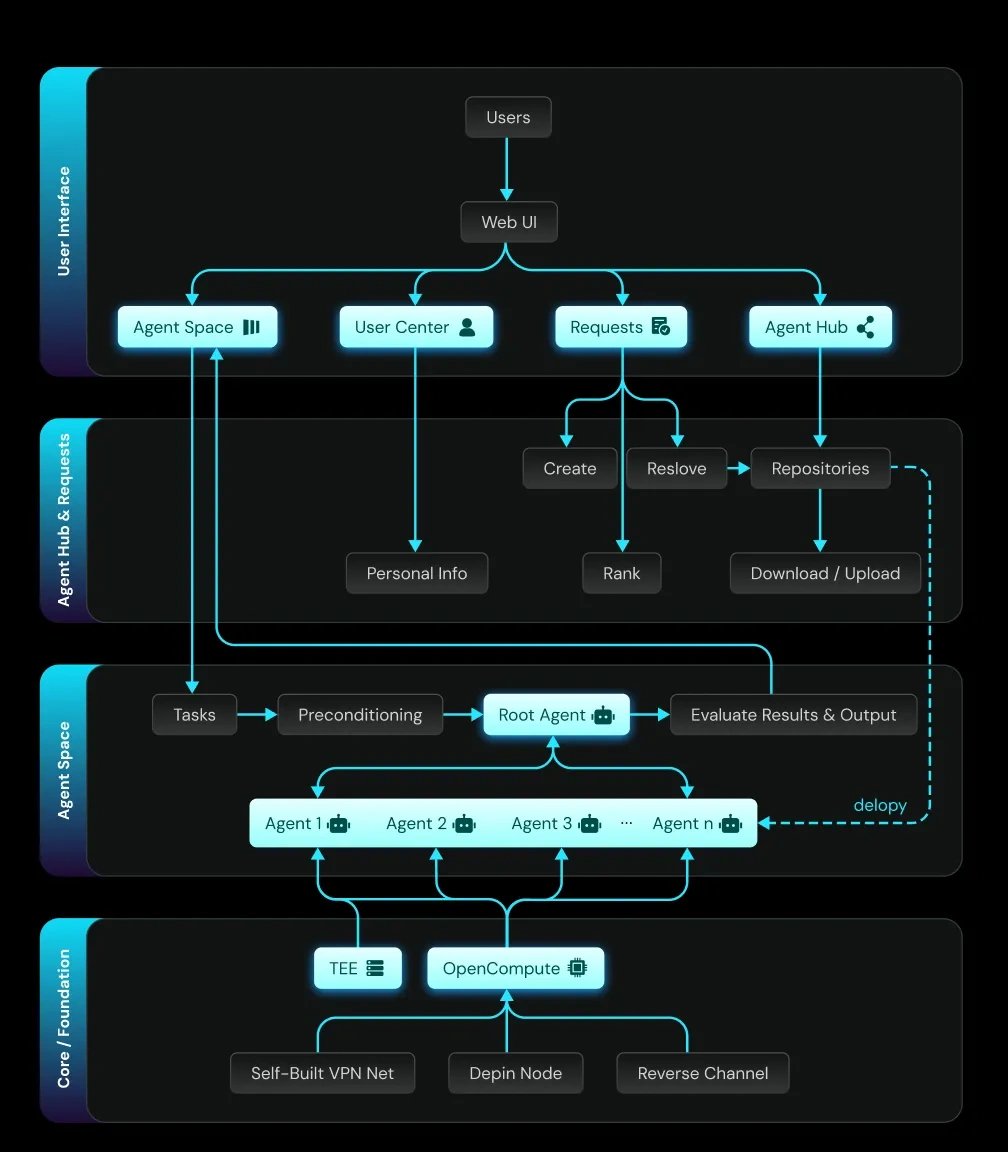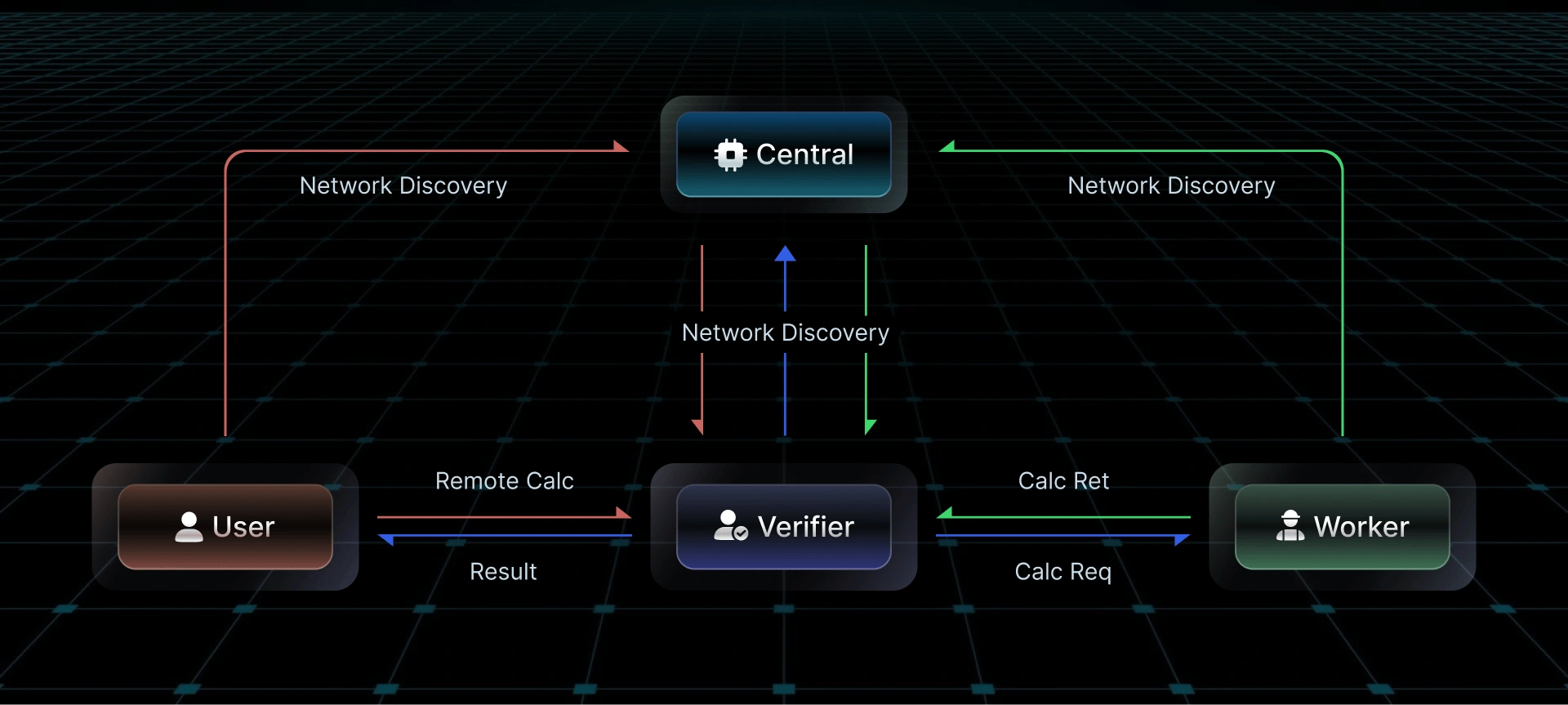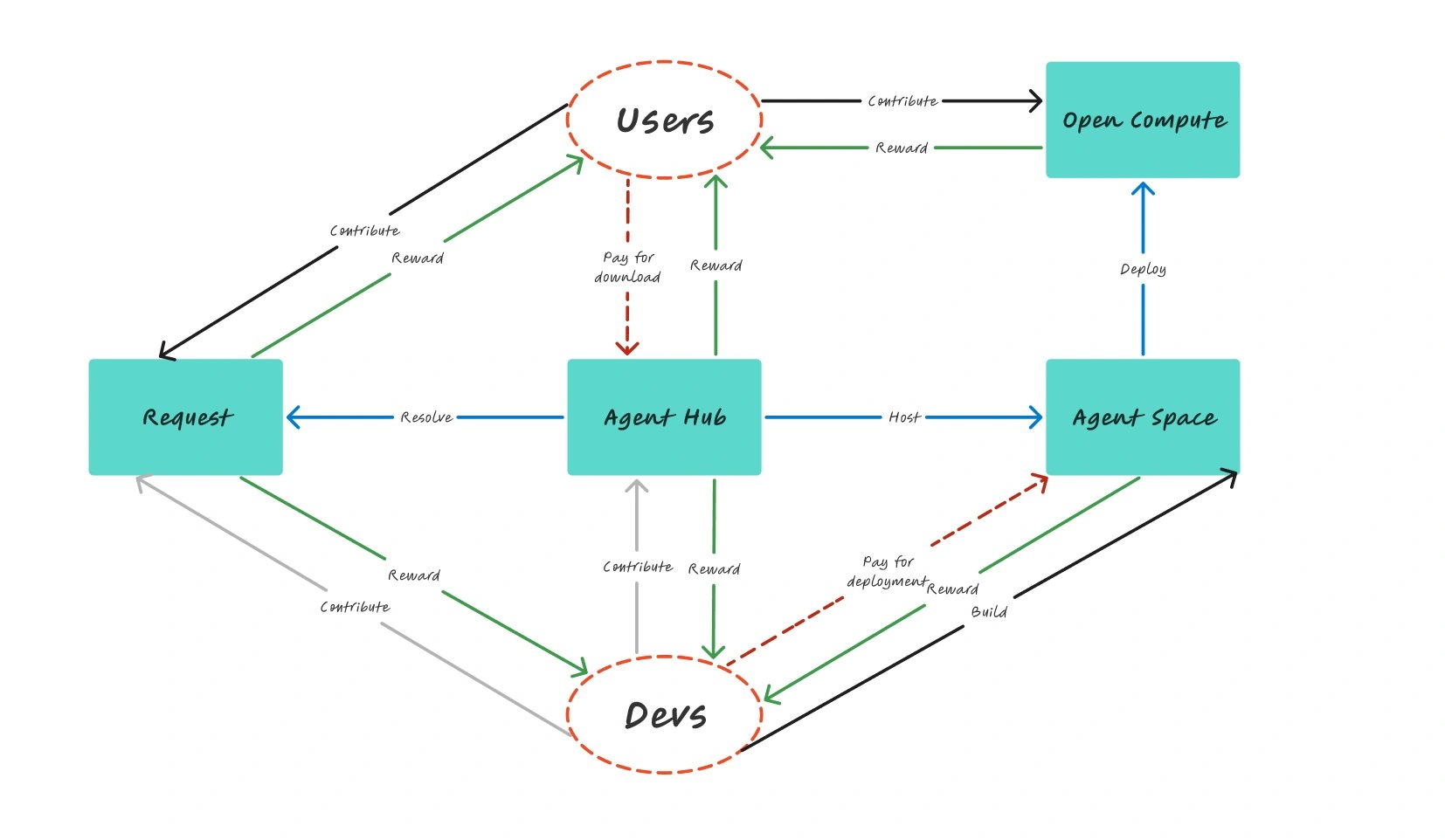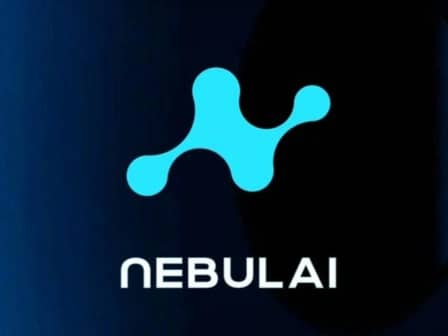위키 구독하기
Share wiki
Bookmark
Nebulai
0%
Nebulai
Nebulai는 개발자와 사용자를 연결하여 AI 에이전트 솔루션 생성을 용이하게 하도록 설계된 분산형 AI 플랫폼입니다. 다양한 모듈과 기능을 통해 AI 에이전트의 개발, 배포 및 협업을 간소화하는 것을 목표로 합니다. [1]
개요
Nebulai는 블록체인 기반 인센티브 시스템을 통해 AI 에이전트의 협업, 공유 및 사용을 가능하게 하는 분산형 AI 네트워크입니다. 스마트 작업 조정, 오픈 소스 개발, 토큰 기반 보상 및 확장 가능한 컴퓨팅 인프라를 통합하여 커뮤니티 중심의 AI 생태계를 지원합니다.
이 플랫폼은 개발자와 사용자 간의 협력을 촉진하도록 설계되었으며, $NEB 토큰과 교환하여 AI 모델 및 알고리즘에 대한 기여를 허용합니다. 이 설정은 AI 기술의 집단적 개선 및 실제 적용을 장려합니다.
Nebulai의 장기적인 목표는 AI 에이전트가 상호 작용하여 인간 생산성을 향상시킬 수 있는 분산형 토큰 기반 마켓플레이스를 만드는 것입니다. 이 시스템은 분산된 혁신, 사용자 중심의 수요 및 실제 AI 개발을 지원하기 위한 컴퓨팅 리소스에 대한 액세스를 강조합니다.
이 생태계는 AI 요구 사항과 개발자 솔루션을 매칭하는 에이전트 요청, 모델 및 알고리즘 저장소인 에이전트 허브, AI 에이전트가 작업에 대해 협업하는 에이전트 공간, 공유 컴퓨팅 성능에 대한 액세스를 제공하는 오픈 컴퓨팅의 네 가지 주요 요소로 구성됩니다. [2]

특징
에이전트 요청
에이전트 요청은 새로운 에이전트 기능 또는 역량에 대한 사용자 제출 요청을 수집하고 우선 순위를 지정하여 AI 사용자와 개발자 간의 커뮤니케이션을 용이하게 하는 Nebulai 내의 크라우드 소싱 기능입니다. 이 플랫폼은 사용자가 필요로 하는 것과 개발자가 구축하는 것 사이의 격차를 해소하고 개발을 실제 사용 사례에 맞추도록 설계되었습니다.
사용자는 제안, 비판 또는 아이디어를 게시할 수 있으며, 개발자는 해당 요구 사항을 해결하는 에이전트 저장소를 연결하여 응답합니다. 이 시스템은 인기 있거나 긴급한 요청을 표시하기 위해 댓글 및 공유와 같은 커뮤니티 상호 작용 도구를 통합합니다. 블록체인 기반 백엔드는 투명성을 보장하고 참여 메트릭은 가장 관련성이 높은 기여를 순위 지정하고 표시하는 데 도움이 됩니다. 외부 통합을 위한 API를 사용할 수 있어 다른 플랫폼에서 수요 데이터에 액세스하고 활용할 수 있습니다. [3]
에이전트 허브
에이전트 허브는 개발자가 AI 에이전트를 게시하고 사용자가 특정 요구 사항에 따라 이를 검색하고 활용할 수 있는 분산형 마켓플레이스입니다. 모든 거래가 $NEB 토큰으로 이루어지는 구독 또는 다운로드당 요금과 같은 유연한 가격 모델을 지원합니다.
사용자는 인기, 다운로드 횟수 및 최신성과 같은 메트릭으로 에이전트를 검색하고 필터링할 수 있으며, 평가 및 댓글과 같은 커뮤니티 피드백을 검토할 수 있습니다. 개발자는 에이전트의 성능 및 사용량과 관련된 토큰 보상을 통해 인센티브를 받아 지속적인 개선과 적극적인 참여를 장려합니다. [4]
에이전트 공간
에이전트 공간은 AI 에이전트를 위한 분산형 조정 계층입니다. 플랫폼에서 호스팅되는 에이전트와 외부에서 배포된 에이전트 모두 API를 통해 상호 작용할 수 있습니다. 사용자 입력을 기반으로 에이전트를 자율적으로 선택하고 조립하여 작업 분배 및 협업을 최적화함으로써 다중 에이전트 워크플로를 지원합니다.
이 시스템은 중앙 에이전트가 하위 에이전트를 조정하여 작업의 고유한 부분을 처리하여 효율성을 향상시키는 계층화된 모델을 사용합니다. 토큰 기반 인센티브는 각 에이전트의 기여도에 따라 할당됩니다. 에이전트 공간은 오픈 소스 문서를 유지 관리하고 사용 가능한 리소스를 개선하거나 확장하기 위한 기여를 초대합니다. [5]
오픈 컴퓨팅

OpenCompute는 브라우저 기반의 제로 설치 노드를 통해 전 세계 사용자의 유휴 컴퓨팅 성능을 집계하는 분산형 컴퓨팅 프레임워크입니다. AI 추론, 수치 시뮬레이션, 그래픽 렌더링 및 영지식 증명 및 다자간 계산과 같은 개인 정보 보호 계산에 최적화된 분산되고 검증 가능한 실행 계층을 제공합니다.
이 시스템은 샌드박스 처리된 원격 실행, 동적 신뢰 검증 및 분산된 작업 스케줄링을 결합하여 중앙 집중식 클라우드 인프라에 대한 대안을 제공합니다. 사용자는 하드웨어를 관리하지 않고도 워크로드를 배포할 수 있으며, 기여자는 인센티브를 받는 대가로 컴퓨팅 성능을 제공합니다. 네트워크의 역할에는 작업(작업을 정의하는 사용자), 작업자(브라우저에서 작업을 실행하는 사용자), 검증자(결과를 검증하는 사용자) 및 ID, 스케줄링 및 작업자 등록을 처리하는 중앙 코디네이터가 포함됩니다.
OpenCompute는 안전한 브라우저 샌드박스 내에서 실시간으로 컴파일되는 경량 스크립팅 언어를 사용하여 다양한 기술 기능을 지원합니다. 이 아키텍처는 중앙 집중식 온보딩 및 분산형 피어 투 피어 운영을 촉진합니다. 스케줄링 시스템은 작업자 가용성 및 안정성을 기반으로 작업을 동적으로 할당하며, 신뢰 점수는 보다 일관된 기여자의 우선 순위를 지정하는 데 사용됩니다.
작업은 정확성과 성능을 유지하기 위해 합의 메커니즘을 통해 검증됩니다. 실행이 지연되면 적시에 완료되도록 작업을 추가 작업자에게 다시 할당합니다. 이 구조는 확장성, 병렬성 및 내결함성을 제공합니다. OpenCompute는 Nebulai AI 생태계를 뒷받침하고 더 광범위한 Web3 애플리케이션을 위한 분산형 인프라 계층 역할을 하여 허가 없는 복원력 있고 비용 효율적인 컴퓨팅 서비스를 제공합니다. [6]
NEB
$NEB는 Nebulai의 분산형 AI 생태계에 전력을 공급하는 유틸리티 토큰입니다. 거래, 보상 및 거버넌스를 위한 매개체 역할을 함으로써 개발자, 사용자 및 에이전트 간의 인센티브를 조정합니다.
개발자는 AI 에이전트를 기여, 통합 및 수익 창출하여 $NEB를 얻습니다. 사용자는 $NEB를 사용하여 프리미엄 기능, 자동화 도구 및 에이전트 상호 작용에 액세스합니다. 에이전트 공간 내에서 에이전트는 복잡성, 성능 및 추가된 가치로 측정되는 작업 실행에서 자신의 역할에 따라 $NEB 보상을 받습니다. OpenCompute 기여자는 컴퓨팅 성능을 제공한 대가로 $NEB로 보상을 받고 사용자는 해당 서비스를 사용하기 위해 $NEB를 지불합니다. 토큰 보유자는 플랫폼 업데이트 및 거버넌스 결정에 투표할 수 있습니다. [7]

파트너십
잘못된 내용이 있나요?
